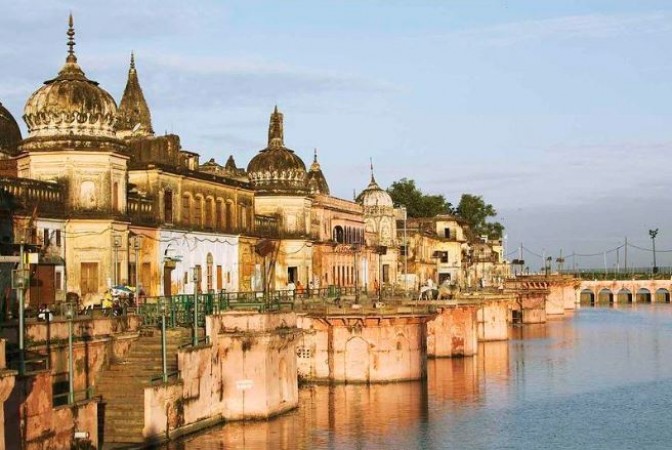
Ayodhya: Ayodhya, a sacred city in Uttar Pradesh, is graced by the presence of the Saryu River, an ancient waterway integral to the city's history. Flowing from the Himalayas through Uttarakhand and Uttar Pradesh, the Saryu River has been witness to the life and reign of Lord Ram, contributing to the fertility of Ayodhya.
Despite its significance, a little-known aspect of the Saryu River is that it carries a curse preventing its use for worship. The legend traces back to Lord Ram, who, after completing his earthly journey, took 'samadhi' in the Saryu River. In response to this act, Lord Shiva, displeased with the river, cursed it, decreeing that its water could no longer be utilized for worship, and it would no longer be revered.
In an attempt to lift the curse, Mother Saryu humbly approached Lord Shiva, pleading innocence and seeking reconsideration. Although Lord Shiva could not revoke the curse entirely, he allowed people to purify themselves by bathing in the river, but the water itself wouldn't be consecrated for temple worship, nor would individuals gain virtue by bathing in it.
This ancient curse persists to this day. During city rituals and ceremonies, water from seven rivers is typically used, excluding the Saryu. The curse's impact is such that neither the Kumbh nor the Ardh Kumbh festivals are conducted on the Saryu River's banks. Despite its sacredness, the river continues to bear the weight of an age-old divine decree.
Bail Granted to Shrikanth Poojary, Arrested by Karnataka Police in 1992 Babri Masjid Riots Case
From Ramlala's Idol to Temple Design and Pillars: Discover 10 Special Features of the Ram Temple
Ministry of Defence Seals Contracts Valued at Rs 802 Crore for Military Equipment